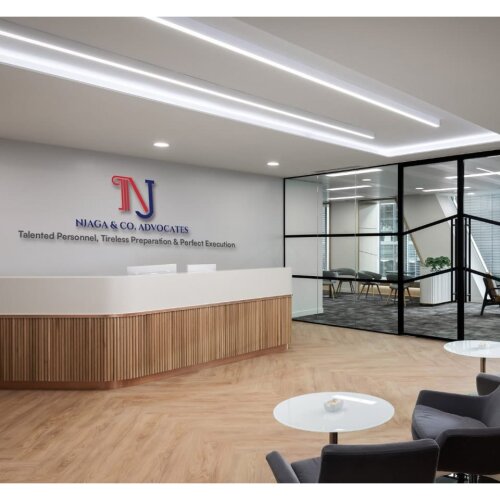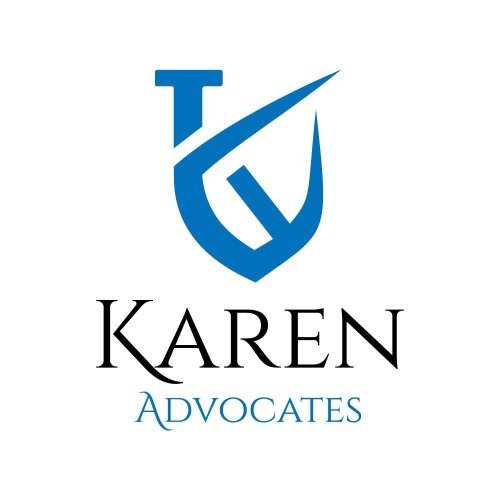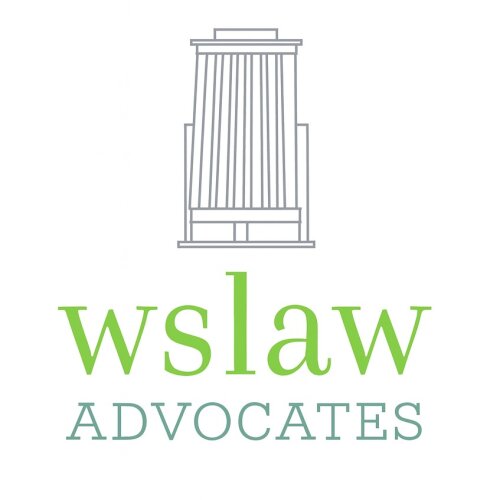Best Residence by Investment Lawyers in Nairobi
Share your needs with us, get contacted by law firms.
Free. Takes 2 min.
List of the best lawyers in Nairobi, Kenya
About Residence by Investment Law in Nairobi, Kenya:
Residence by Investment in Nairobi, Kenya allows individuals to obtain residence permits or citizenship through making a significant investment in the country. This program aims to attract foreign investors and boost economic growth in the country.
Why You May Need a Lawyer:
You may require a lawyer for assistance in navigating the complex legal requirements, ensuring compliance with all regulations, and protecting your rights throughout the residence by investment process.
Local Laws Overview:
Some key aspects of local laws relevant to Residence by Investment in Nairobi, Kenya include the minimum investment amount, eligible investment types, residency requirements, and the application process.
Frequently Asked Questions:
1. What is the minimum investment required for Residence by Investment in Nairobi, Kenya?
The minimum investment amount varies depending on the specific program you choose, but it typically ranges from $100,000 to $500,000.
2. What types of investments are eligible for Residence by Investment in Nairobi, Kenya?
Common eligible investments include real estate, government bonds, and contributions to specific development projects in the country.
3. How long does the residence permit remain valid?
The validity of the residence permit varies, but it typically ranges from 1 to 5 years, with the option to renew or apply for permanent residency.
4. Are family members eligible to apply for residence permits under the same investment?
Yes, many programs allow for family members to be included in the application, such as spouses and dependent children.
5. What are the benefits of obtaining residency through investment in Nairobi, Kenya?
Benefits include visa-free travel, access to healthcare and education, tax incentives, and the opportunity to eventually apply for citizenship.
6. Are there any restrictions on the nationality of applicants for Residence by Investment in Nairobi, Kenya?
Most programs are open to foreign nationals from eligible countries, but some restrictions may apply based on the specific program requirements.
7. How long does the application process usually take?
The application process can vary in length, but it typically takes several months to complete all necessary steps and obtain the residence permit.
8. What are the key documents required for the application?
Commonly required documents include proof of investment, a valid passport, medical certificates, a police clearance certificate, and proof of financial means to support yourself and your family.
9. Can I work in Nairobi, Kenya with a residence permit obtained through investment?
Some programs allow for work authorization, while others restrict or limit employment opportunities for residence permit holders.
10. What are the potential risks or challenges associated with Residence by Investment in Nairobi, Kenya?
Potential risks include changes in government policies, investment losses, delays in processing applications, and the need to comply with ongoing residency requirements.
Additional Resources:
For more information on Residence by Investment in Nairobi, Kenya, you can refer to the Immigration Department of Kenya, investment promotion agencies, and legal firms specializing in immigration law.
Next Steps:
If you require legal assistance or guidance in navigating Residence by Investment in Nairobi, Kenya, it is advisable to consult with an experienced lawyer who can provide personalized advice and support throughout the process.
Lawzana helps you find the best lawyers and law firms in Nairobi through a curated and pre-screened list of qualified legal professionals. Our platform offers rankings and detailed profiles of attorneys and law firms, allowing you to compare based on practice areas, including Residence by Investment, experience, and client feedback.
Each profile includes a description of the firm's areas of practice, client reviews, team members and partners, year of establishment, spoken languages, office locations, contact information, social media presence, and any published articles or resources. Most firms on our platform speak English and are experienced in both local and international legal matters.
Get a quote from top-rated law firms in Nairobi, Kenya — quickly, securely, and without unnecessary hassle.
Disclaimer:
The information provided on this page is for general informational purposes only and does not constitute legal advice. While we strive to ensure the accuracy and relevance of the content, legal information may change over time, and interpretations of the law can vary. You should always consult with a qualified legal professional for advice specific to your situation.
We disclaim all liability for actions taken or not taken based on the content of this page. If you believe any information is incorrect or outdated, please contact us, and we will review and update it where appropriate.














